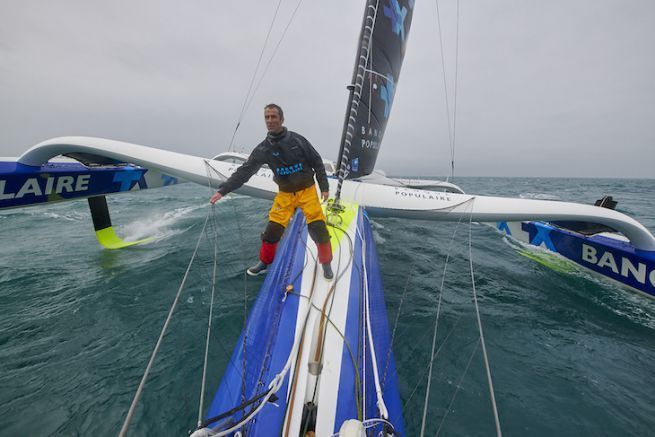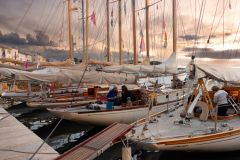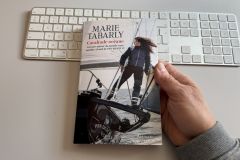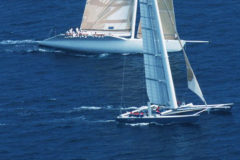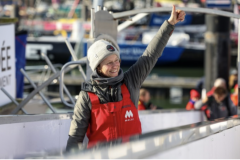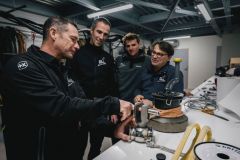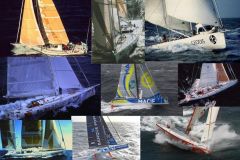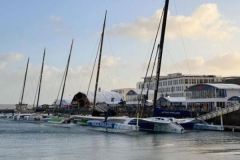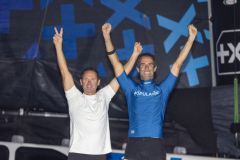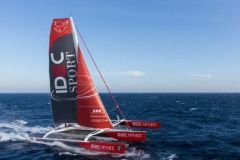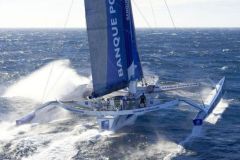The course of the capsizing
"Last night we sailed on port tack towards Cadiz. We'd left Lorient on Tuesday, and we'd made a long tack along the coast of Portugal. To train, we went to look for a crossing point in the northwest of the Canaries. We were making our way back to Cadiz to pick up the crew for the rest of the programme.
The sea and wind conditions were quite correct, with 18/20 knots of wind at the time of the incident. The seas were a little rough because the wind had been steady for quite some time over western Portugal. On the way down to the Canary Islands, we had strong winds up to 40-45 knots. We were on a fairly tight tack, unbridled upwind, one reef in the mainsail and the small jib. I had done the routing and as the hours went by the wind was getting lighter and lighter. The conditions were rather stable, I had checked and there were no squalls or possible storms ahead of us. Pierre-Emmanuel Hérissé (the technical director of Team Banque Populaire) and our media man were inside, and I was in my cabin watching the manoeuvres.
I went to lie down in the bunk for five minutes to start a nap. The boat started to get up very quickly following an oversold wind, so I didn't have time to get out. I was able to shock the mainsail but it wasn't enough. Everything went very fast and the boat tipped over to the starboard side. I found myself upside down in the water that had flooded the cabin. Pierre-Emmanuel was calling me to see if I was there. We were able to get along between two waves, I managed to get out of there and into the central hull safely with them, under cover.
We made a point right away of making sure no one got hurt. I promptly set off the emergency beacon to alert the authorities.
We've assembled the safety gear and donned our survival suits. I contacted Ronan Lucas (the director of Team Banque Populaire) via the portable iridium that was in the survival canister to tell him that we were all on board and above all that there were no injuries.
Two hours later, a freighter arrived on the zone, we exchanged with them by VHF. It was dark, we couldn't get off the boat immediately.
The day dawned, a patrol boat was supposed to join us at the end of the day but finally a helicopter of the French Navy was able to take off from Casablanca at noon to come and pick us up. On arrival, one after the other, we got into the helicopter and landed at the military port of Casablanca on a frigate at the quayside. We were very well welcomed by the Moroccan Navy, we were able to eat and have some health checks, we thank them for everything and the crew of the helicopter. We were then taken care of by the French Consulate.
State of mind
"It's really tough, the conditions at sea were manageable, we've sailed before in much stronger and more committed conditions. Everything changed in a few seconds. In my opinion, it's linked to an oversold wind. When we left the boat, the three hulls and the arms were intact, the mast was broken into several pieces"
